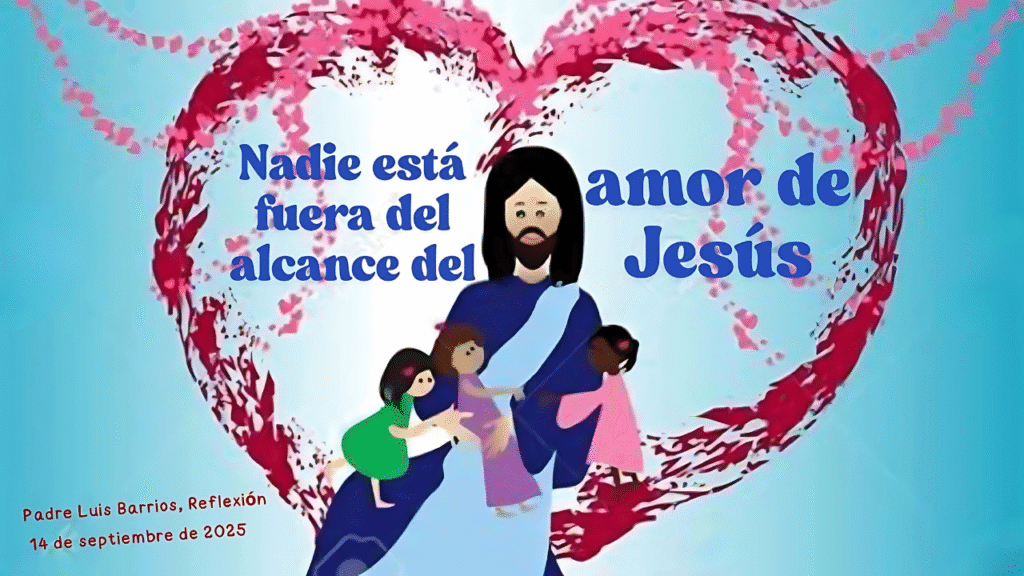Jeremiah 4:11-12, 22-28; 1 Timothy 1:12-17; Psalm 14; Luke 15: 1-10
Fourteenth Sunday after Pentecost- Proper 19- September 14, 2025
“This fellow welcomes sinners and eats with them” (from Luke 15:1-10). That’s what the Pharisees and scribes said about Jesus. So how does that strike you? What do you hear in those words? Are they words of complaint and disagreement or ones of hope and invitation?
At one level the words of the Pharisees and scribes are simply a statement of fact. That’s what Jesus did. He ate with tax collectors and sinners. Not only does Luke tell us this but so do Matthew and Mark. At another level they are an accusation, an indictment, and a judgment. In the eyes and words of the Pharisees and scribes Jesus is guilty of violating the law and social norms of the day. At the deepest level, however, their words are, ironically enough, a statement of the gospel. They have just spoken the good news. Jesus not only welcomes the sinners, but he also eats with them. Eating with them means there is relationship and acceptance. Jesus has aligned himself with them. He is on their side.
Luke tells us that the “tax collectors and sinners” were drawing near to Jesus. And what was the reaction of the religious leaders? Grumbling. Complaining. “This man welcomes sinners and eats with them.”
Let’s be honest. Respectable religion has always had a problem with the wrong people coming too close. Churches today still ask: Do they belong here?
The addicted. The undocumented. The unhoused. The queer. The formerly incarcerated. And Jesus answers—not with an argument, but with a story.
First story: the shepherd leaves 99 sheep in the open wilderness to chase after the one. By every measure, that’s foolish. Risking the 99 for the one is not “good management.” But that’s the point: God is not a manager. God is a lover. And lovers are reckless.
Second story: a woman turns her whole house upside down to find one coin. She lights a lamp, sweeps the floor, digs into every dark corner. God’s kingdom-community is like a person on her or his hands and knees, searching in the dust until they finds what is precious.
Sisters and brothers, here’s the radical edge: God’s love is not efficient. God’s love does not calculate profit and loss. God’s love is wasteful, stubborn, unreasonable.
And if God is willing to risk everything for one lost soul, how dare we build churches that only welcome the safe, the clean, the respectable?
In this God’s reckless search, we find a message of hope in Jeremiah 4:11–12, 22–28. Even when the winds of judgment blow and the land trembles under the weight of brokenness, God is not finished with creation or with us. The harsh imagery in Jeremiah reminds us that sin brings chaos and emptiness, but it also points to God’s deep desire for transformation. The God who allows the storm is the same God who calms it. The positive word is this: our failures are not the final word. Even when it feels like the world is falling apart, God is preparing the ground for renewal.
In addition, in I Timothy 1:12–17 we find a testimony of God’s amazing grace. Paul remembers who he once was—violent, stubborn, even an enemy of Christ—and yet, God chose him, forgave him, and entrusted him with ministry. Instead of shame, Paul is filled with gratitude: “I thank Christ Jesus our Lord, who has given me strength… the grace of our Lord was poured out on me abundantly.” The good news is this: no one is beyond the reach of God’s love.
God’s economy is not like our savage capitalism. In God’s economy, no one is disposable. Not the drug user, not the migrant, not the incarcerated person, not the person you fear or despise.
The parables end in joy: parties, music, dancing. Heaven itself celebrates when what is lost is found. This means that the community of God’s kingdom is less like a board meeting and more like a block party. Less like a gated community and more like a dance floor open to the entire neighborhood. So, church, the challenge is clear: Will we join Jesus in his tireless search?
Will we revolutionize our churches, sweep away the dust, light the lamps, and search every dark corner of our society for the forgotten and marginalized? Because if we don’t go in search of what is lost, perhaps we are the ones who are lost.
The parables end in joy—parties, music, dancing. Heaven itself throws a celebration when the lost is found. That means the kingdom-community of God looks less like a board meeting and more like a block party. Less like a gated community and more like a dance floor open to the whole neighborhood.
So, church, the challenge is clear: Will we join Jesus in his reckless search?
Will we turn our churches inside out, sweep the dust, light the lamps, and search every dark corner of our society for those forgotten and cast aside? Because if we will not go after the lost, then maybe we are the ones who are lost.
The Good news is that Jesus is still searching. Jesus is still calling. And when Jesus finds us—dirty, wounded, wandering—Jesus does not scold us. Jesus rejoices. Jesus throws a party. Friends, that’s the radical gospel: You are worth the risk. You are worth the search. You are worth the party. Jesus’ reckless search is a paradigm for our discipleship and our ways to build churches.
Amen & Ashe.
